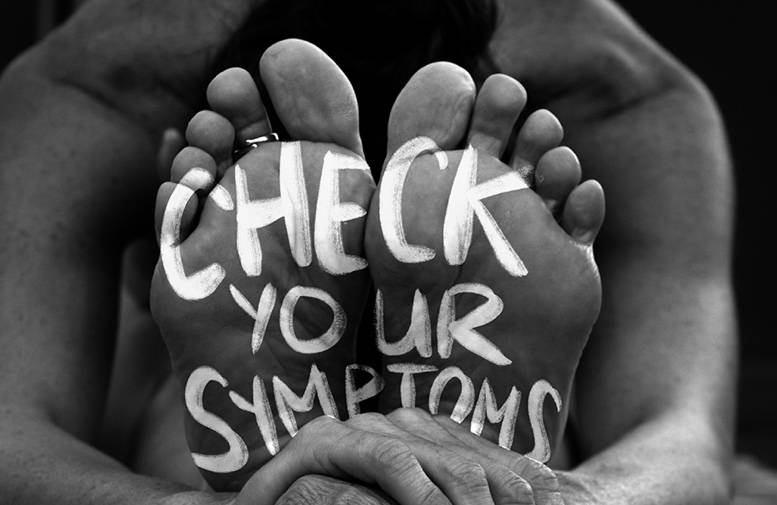Iron for healthy children
From birth through to teenage years, iron plays a vital role in your child’s growth, brain development and ability to fight off infections. Rapid growth spurts can quickly deplete their iron ‘bank’, putting them at risk of iron deficiency. Watch out for tiredness, paleness, and a lack of zest for life – all warning signs children may need an iron boost.
Iron for a healthy baby
In the last trimester of pregnancy, your baby is busy storing 80% of the iron it needs to grow for the first six months of life1. It plays a key role in baby’s brain development, both in the womb and afterwards. Mothers can support this supply of the mineral by eating iron-rich foods throughout pregnancy. Factors that may lower your baby’s iron levels or put them at risk of developing iron anemia deficiency can include:
- Iron deficiency during pregnancy
- If you smoked during pregnancy
- If the baby is premature
- If you have diabetes
Always speak to your doctor before taking any supplements.
Iron for growth and learning
Once your baby has used up its own iron store, he needs 11mg of iron every day for the phase of rapid growth in the remainder of the first year. This reduces to 7mg between the ages of 1 – 32. Because there is not much iron in breastmilk3 and your baby’s still-developing gut is unable to absorb iron from food4, it’s recommended that, starting at four months, your baby has a daily iron supplement of 1mg per every kg of weight until they are eating enough iron-rich foods5.
Watching your baby hit milestones such as learning to smile, roll over, walk, or talk is a joyful part of parenthood. Incredibly, a baby’s brain doubles in size in the first year and is almost adult sized by the age of two3. Iron deficiency during this crucial stage can hamper your child’s development, such as hand/eye coordination, IQ, and social and emotional skills6.
Happily, most of these effects can be remedied by making sure your baby is not iron deficient and it will stand them in good stead as they continue through childhood.
How much iron does your child need?
For healthy growth and development, your child will require an ever-changing amount of iron. As many parents know, encouraging young children to eat enough nutrient-rich food can be a challenge and that means preschool children are more likely to be affected by iron deficiency and iron deficiency anemia7.
Iron also boosts your little one’s immune system8 – important to fight off germs when they start nursery or school.
As your child gets older, the amount of iron they need to help them grow and develop changes, with babies needing more than early years children.
| Age | Amount of iron needed a day |
|---|---|
| 6-12 months | 11 mg |
| 1-3 years | 7 mg |
| Adult, non-pregnant woman | 18 mg (due to periods) |
| Adult, male | 8 mg |
Iron for teenagers
Teenagers need twice as much iron in their diet than pre-puberty to continue to be healthy as they manage growth spurts.4 During this time, teenagers will develop an increasing awareness around body image and perhaps have more control over their diet and exercise habits. If your teenager is over-exercising or not eating healthily, these factors can affect their iron intake. Beyond physical concerns, iron supports brain function, vital for successful studies. To support your teen and make sure they feel healthy and are getting enough iron, regularly ask them how they are feeling – poor concentration and exhaustion could be signs of iron deficiency.
Iron for teenage girls
Iron deficiency is more common in teenage girls than boys because of their periods. Each teenage girl will experience a different menstrual flow – those with heavy periods will lose more blood and require more iron replacement. They may feel more pressure to look ‘good’ and girls who have tried to lose weight in the last year are three times more likely to have iron deficiency than those who haven’t dieted3. Find out more about iron and menstruation to support your daughter’s iron levels.
Iron for teenage boys
Active teenage boys need a good supply of iron for optimum muscle function. An iron deficiency can show up as not having enough energy while playing sports, for example, because it reduces the amount of oxygen being transported around his body. If you are concerned, why not go through our symptom checker with your son and work together to top up his iron supplies?
- Rao R, Georgieff MK. Iron in fetal and neonatal nutrition. Semin Fatal Neonatal Med. 2007; 12(1); 54-63. doi: 10.1016/j.siny.2006.10.007.
- Baker RD, Greer FR. Diagnosis and prevention of iron deficiency and iron-deficiency anemia in infants and young children (0-3 years of age). Pediatrics. 2010;126(5):1040-50. doi:10.1542/peds.2010-2576.
- Ziegler EE, Nelson SE, Jeter JM. Iron supplementation of breastfed infants. Nutr rev. 2011;69 suppl 1:s71-7. Doi:10.1111/j.1753-4887.2011.00438.x.
- Radlowski EC, Johnson RW. Perinatal iron deficiency and neurocognitive development. Front hum neurosci. 2013;7:1-11. Available at: http://www.pubmedcentral.nih.gov/articlerender.fcgi?artid=3779843&tool=pmcentrez&rendertype=abstract. Accessed september 30, 2013.
- McDermid J, Lönnerdal B. Iron. Adv Nutr. 2012;(1):532-533. doi:10.3945/an.112.002261.Table
- Lozoff B, Beard J, Connor J, Felt B, Georgieff M. Long-lasting Neural and Behavioral effects of iron deficiency in infancy. Nutr Rev. 2006;64:S34-S91.
- Mclean E, Cogswell M, Egli I, Wojdyla D, de Benoist B. Worldwide prevalence of anaemia, WHO Vitamin and Mineral Nutrition Information System, 1993-2005. Public Health Nutr. 2009;12(4):444-54. Doi:10.1017/S1368980008002401.
- Dhur A, Galan P, Hercberg S. Iron status, immune capacity and resistance to infections. Comp Biochem Physiol. 1989;94A(1):11-19.



